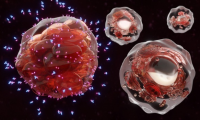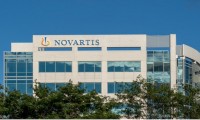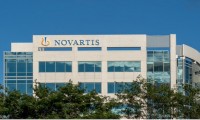-
Alkermes Spins Off Oncology Business with $275M to Focus on Neuroscience
- Source: drugdu
- 123
- November 17, 2023
-
Novartis Enters into Deal with Legend Biotech for $100 Million Upfront
- Source: drugdu
- 103
- November 15, 2023
-
GSK’s momelotinib recommended by CHMP to treat myelofibrosis patients with anaemia
- Source: drugdu
- 95
- November 15, 2023
-
EU regulator changes its mind on Mirati’s KRAS inhibitor Krazati with a thumbs-up following initial snub
- Source: drugdu
- 91
- November 14, 2023
-
Eli Lilly reiterates POINT acquisition plans with tender offer extension
- Source: drugdu
- 103
- November 13, 2023
-
Bayer Eyes Break-Up, Management Cuts on Disappointing Q3 Results
- Source: drugdu
- 119
- November 10, 2023
-
BioNTech acquires right to Biotheus’ bispecific antibody candidate in deal worth over $1bn
- Source: drugdu
- 100
- November 10, 2023
-
HHS Considers Removing J&J’s Stelara from Medicare Drug Price Negotiations
- Source: drugdu
- 110
- November 9, 2023
-
Novartis Inks Potential $1.3B Contract with Korean Biotech for Small Molecule
- Source: drugdu
- 104
- November 9, 2023
-
Covera Health Acquires CoRead, Secures up to $50M To Improve Radiology
- Source: drugdu
- 92
- November 9, 2023
your submission has already been received.
OK
Subscribe
Please enter a valid Email address!
Submit
The most relevant industry news & insight will be sent to you every two weeks.













